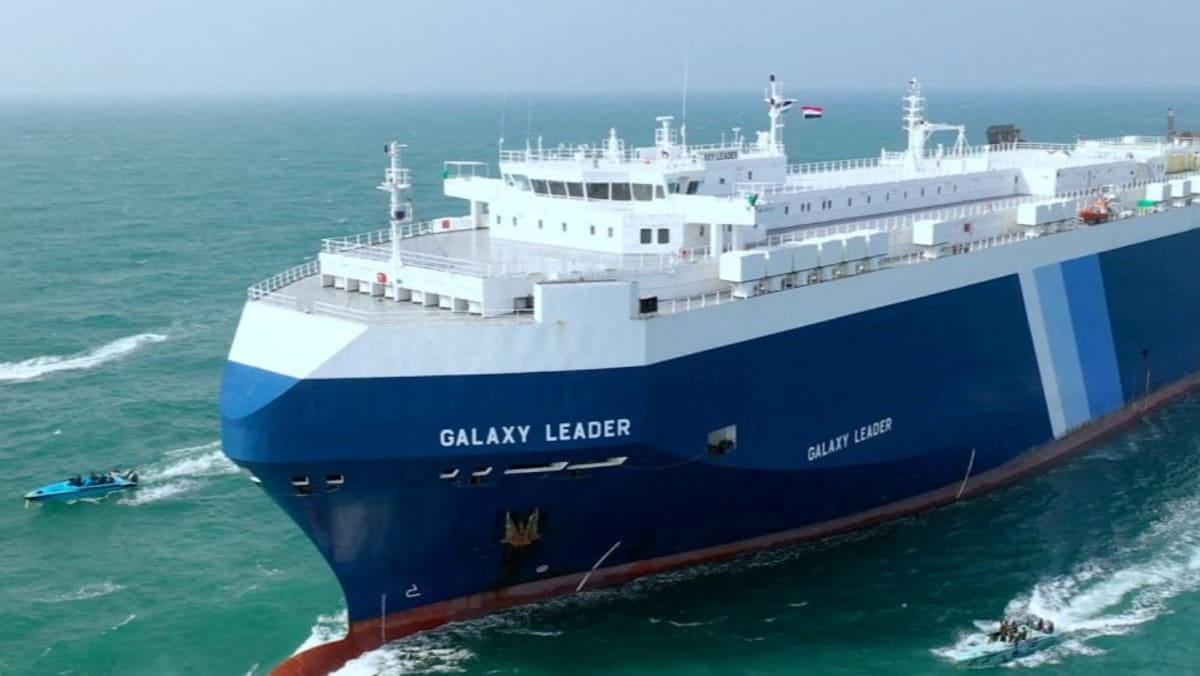SINGAPORE — The United States on Monday (Dec 18) announced a 10-nation coalition to fend off missile and drone attacks on ships transiting the Red Sea, which is part of a major global shipping route.
WILL SINGAPORE BE AFFECTED?
Assoc Prof Tay of SUSS said that as a major logistics hub, Singapore “would certainly be impacted” by potential rerouting or delays of shipments.
“The Christmas and end-of-the-year peak season for the shippers around the corner is very likely to add on the already strained logistical network,” she said.
Referring to ship tracking data from the London Stock Exchange Group, Mr Christian Roeloffs, co-founder and chief executive officer of Container xChange, said: “At least 11 container ships, which had passed through Suez and were approaching Yemen carrying consumer goods and grains bound for countries including Singapore, Malaysia and the United Arab Emirates, are now anchored in the Red Sea between Sudan and Saudi Arabia.
“For Singapore, the situation means delays and halts in westbound trade.”
However, other experts gave a more upbeat view of the potential impact on Singapore.
Mr Atul Chandna, leader for Asia-Pacific Supply Chain at professional services firm EY, said that the disruptions caused by Covid-19 has led to many countries, including Singapore, having better business continuity planning for critical items.
“There are alternative sourcing for essential goods planned to ensure that Singapore residents continue to have their necessities.”
In response to TODAY’s queries, PSA said on Tuesday that port operations at PSA Singapore “have not been impacted thus far”.
“Nevertheless, we continue to work very closely with our customers and partners to monitor the Red Sea situation and will assist in mitigating any potential disruptions in vessel schedules, cargo connections, where necessary,” the port authority added. “PSA Singapore continues its operations 24/7 and is committed to service excellence to ensure supply chain channels remain open and keep trade flowing.”
TODAY has reached out to the Maritime and Port Authority of Singapore for comment.
HOW LONG WILL THE SITUATION LAST?
Experts differed in views on how long the situation at the Red Sea will last.
Assoc Prof Tay from SUSS said: “Resolving such geopolitical disruptions and crisis can vary significantly due to various factors.
“If we draw reference from similar disruptions like the one that affected the straits of Taiwan, we can expect disruptions to the supply chain to last at least a month,” she added, referring to the military exercises conducted by China in August last year near Taiwan that disrupted shipping routes.
However, she added that this was a “conservative” estimate.
Others said that given the importance of the route, many global players are likely to try to work together to find resolution to the situation there.
Assoc Prof Yap of SUSS and Assoc Prof Piplani of NTU pointed to the US-led coalition, named Operation Prosperity Guardian, which includes Bahrain, Canada, France, Norway, Spain and the United Kingdom as one example.
On Tuesday, US defence secretary Lloyd Austin held a virtual meeting with ministers from more than 40 countries and called on more nations to contribute to the security efforts.
Assoc Prof Yap said that another nation that has a vested interest in the smooth sailing of ships along the Suez route — and thus would work towards a resolution to the situation — is Egypt.
“I believe Egypt would want to see a resolution to the situation and for things to return to normal quickly,” he added.
“For all we know, negotiations and discussions could already be taking place to resolve the situation.”
Ultimately, Mr Mc Garry, director at business consultancy firm Control Risks, said that what happens at the Red Sea is closely tied to the developments in Gaza Strip.
News agency AFP reported that the Yemeni rebels had vowed in a statement to “continue to prevent all ships heading to Israeli ports… from navigating in the Arab and Red Seas” until more food and medicine is allowed into Gaza.
Mr Mc Garry, however, pointed at two positive signs, one of which was the putting together of the Operation Prosperity Guardian by the US.
While details are not out yet, the “willingness by numerous nations to commit forces to a common mission” is one of the signals that shipping operators have been looking for, he added.
Another positive signal is that the Houthis have stated that they are in negotiations, without stating which parties they are negotiating with, Mr Mc Garry said.
“It is generally a good sign that they’re showing some kind of willingness to negotiate, but I would not take that as a signal that this is going to stop tomorrow or this week.”


